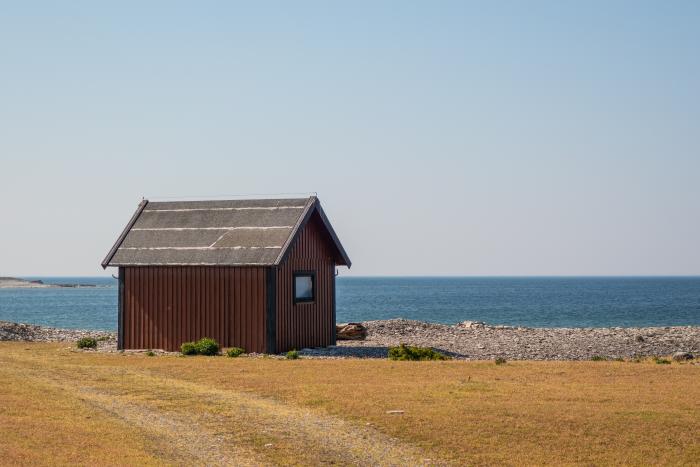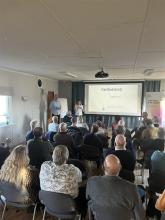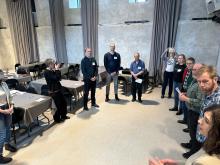
Island facts
Gotland, the largest island in the Baltic Sea has set ambitious goals to become carbon neutral by 2040. To achieve these goals, the island plans to address all aspects of the energy transition. The Clean energy for EU islands secretariat has provided a grant to support these ambitions. Key initiatives include benchmarking progress in the agricultural sector, exploring storage solutions for integration into the regional energy system, and promoting fossil-free mobility solutions in the city.
As part of the 30 for 2030 call the following activities are planned:
The first activity, CETA Development, involves supporting the island in developing initiatives under the Comprehensive Economic and Trade Agreement (CETA). This development will align with the existing and planned changes to Gotland’s energy plan, with a particular focus on decarbonising the agricultural sector.
The second activity is a Feasibility Study for Large-Scale (Seasonal) Storage, which aims to revise the existing feasibility study by incorporating options for hydrogen, pumped hydro, and other technologies. This study will also take into account future interconnections and the need for flexibility to better integrate more renewable energy sources (RES).
Next, the Prefeasibility for Floating PV entails analysing specific sites suitable for floating photovoltaic (PV) systems. This analysis will focus on technical aspects, permitting processes, and potential business cases for implementation.
The Technical Analysis for Future-Proofing Island Transport Infrastructure is another critical activity. This analysis will explore different fuel options for decarbonising aviation, as well as identify the necessary supporting infrastructure to facilitate this transition.
Additionally, a Blueprint/Roadmap for the Decarbonisation of Heritage Site/Inner City will be developed. This roadmap aims to secure political support and facilitate regulatory and policy changes for decarbonising heritage sites and inner cities. It will include exchanges with other cities that have had similar experiences, particularly UNESCO sites while balancing considerations of accessibility and preservation.
Finally, the Exchange of Experiences on Decarbonised Agriculture with other islands will facilitate the sharing of lessons learned and experiences with other relevant islands regarding the decarbonisation of agricultural machinery and methods.
Find out more about the work in Gotland and watch the video.


